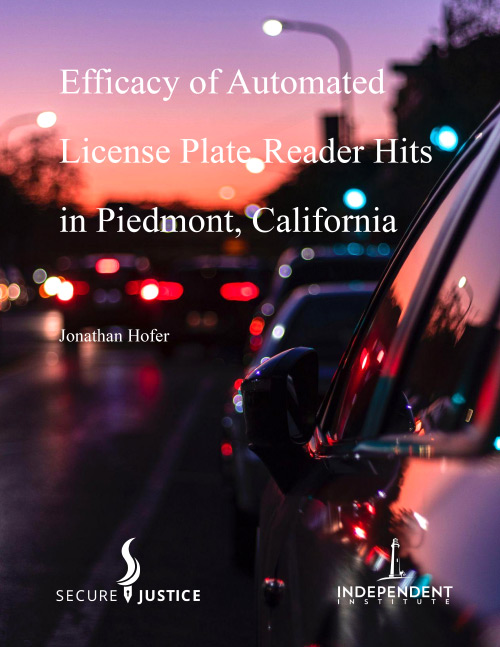Summary
This new Independent Institute report finds that automated license-plate readers (ALPRs) fail to justify their part in municipal mass surveillance. These cameras violate the liberties of the innocent and fail to catch the criminals—and they are seriously expensive. It’s a lose/lose/lose situation America’s cities don’t need now—or ever.
In recent years, American cities have increasingly adopted license-plate readers (ALPRs) for use by local police. The cameras are supposed to help deter vehicle theft, assist police in recovering stolen cars, and assist law enforcement in tracking down important investigative leads, such as locating a witness or identifying a suspect. But they have done nothing of the kind, as this groundbreaking report, co-published with another nonprofit, Secure Justice, reveals.
Analyzing sixteen years of stolen vehicle numbers from Piedmont, California—a “super user” of ALPRs—this report finds poor statistical evidence that ALPRs assist in recovering stolen vehicles or generating leads. Moreover:
- The ratio of Piedmont’s ALPR systems license plate hits-to-investigative leads for law enforcement is subjectively low, less than 0.3% of hits equate to leads;
- There is not even a moderate degree of correlation between ALPR hits (a detected vehicle actively on a “hotlist”) and stolen vehicle recoveries, let alone any apparent casualty; and
- Less than 0.3% of ALPR hits might translate into a useful investigative lead for police.
And these failures were expensive. The city of Piedmont spent $576,378.80 of tax-payer money for more crime and less individual liberty. There is good news, however. Thanks to this report, no other cities in America need to make these mistakes.









